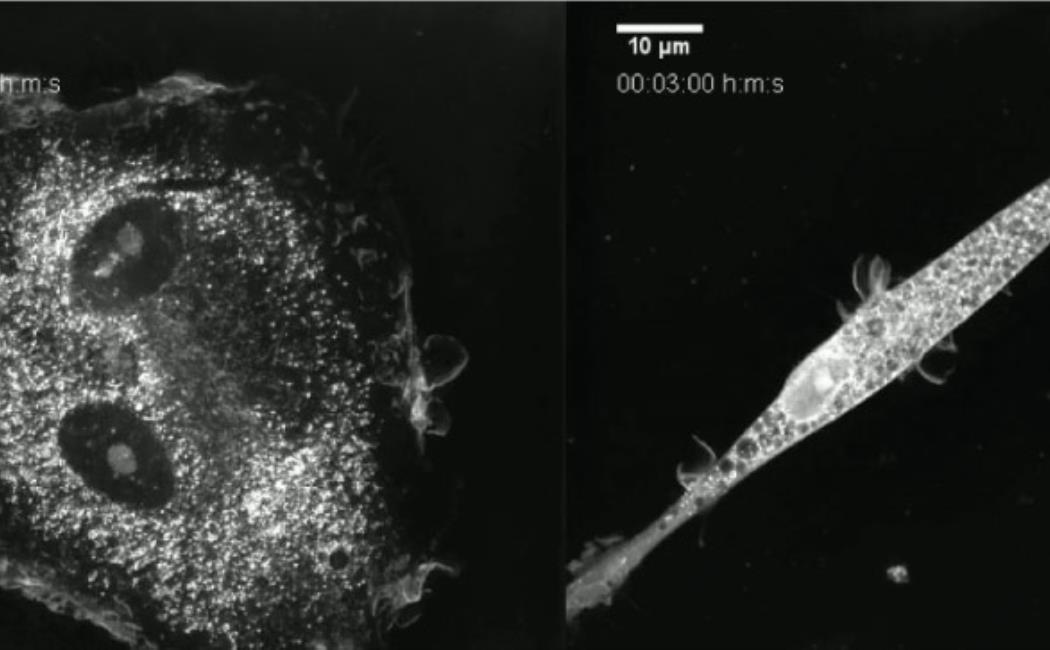
Stem cells reveal underpinnings of rare immune disease
03 July, 2022
A new stem cell study by KAUST researchers helps to explain a rare genetic disease called Wiskott-Aldrich syndrome (WAS), yielding molecular clues that could lead to new treatments for a devastating immune deficiency disorder.
WAS afflicts around one in every 100,000 babies, causing frequent bleeding episodes and infections while also elevating the risk of life-threatening inflammatory diseases and certain cancers. It has been known for almost 30 years that mutations in the gene that encodes WASP — Wiskott–Aldrich syndrome protein — cause the immune abnormality, but the precise functions of this protein have long eluded scientists.
Click here to read the full story.
Image: The wild type (WT) macrophage (left) and the Wiskott-Aldrich syndrome protein knockout (WASP-KO) macrophage (right), as captured by a Nanolive microscope.
© 2022 KAUST.